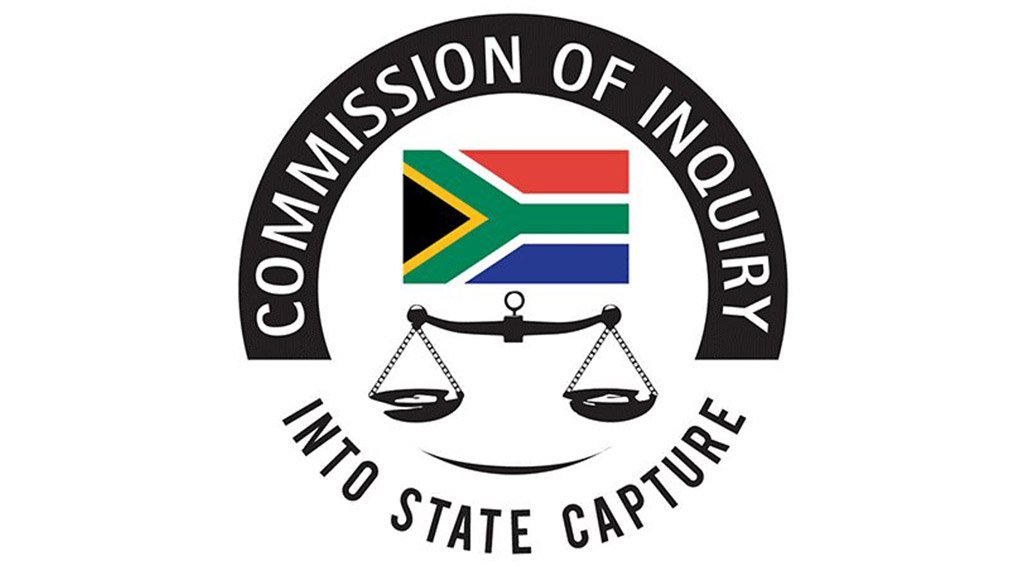/ MEDIA STATEMENT / The content on this page is not written by Polity.org.za, but is supplied by third parties. This content does not constitute news reporting by Polity.org.za.
The latest former Transnet executive to testify before the commission of inquiry into state capture – Mathane Makgatho, who headed up the treasury unit - has laid bare the deliberate side-lining of her department during the locomotives procurement process, by then group CFO Anoj Singh.
It first became clear to Makgatho in January 2014 when, after the preferred bidders for the multi-billion-rand tender had been identified, that Singh wanted Treasury out of the process. When she arrived to participate in what Transnet officials referred to as the “data room”, where the evaluation of the bid entries was to happen, Makgatho was told by a colleague from the supply chain management (SCM) unit that an instruction had come from Singh that she not be allowed in.
“I just did not understand why for such a big and risky procurement event such an instruction could be given out that I could not enter the data room,” said Makgatho. Commission chairperson Deputy Chief Justice Raymond Zondo asked Makgatho if she reported to Singh in terms of hierarchy, to which she replied that she did indeed report to him, but according to her performance contract, which Singh had signed, on the delegations of authority.
Furthermore, she added, the document outlining the delegation of authority within the structure – signed off by the board in May 2013 – allowed a person in her role the responsibility to sign off on mega projects. By Transnet’s terms, mega projects were those with a value above R300-million, and the locomotives contract in question was in the region of R50-billion at this stage.
“There is procedure to sign off contracts, and in this instance it says the group CFO can only sign after sign-offs from treasury, from legal, from tax, from group reporting. So inasmuch as he was the boss, he needed to ascertain himself that group treasury has indeed reviewed and is comfortable with the contents of the document.”
Ignoring this attempt to block her, she went in and started the work of evaluating, alongside Garry Pita, then head of SCM. The first red flag for Makgatho was the apparent inclusion of the same black empowerment partner among three of the bid documents she evaluated. “There was a name I saw in the BEE section of the bids that I saw in this bid and that bid…I said there were BEE partners across the board.”
When she pointed out the matter to Pita, Makgatho got the sense that he too was surprised, but this was before, she said, she realised that he would later become Singh’s enabler. “I was not aware at that point, I thought he was just as innocent as me.”
After a week at the data room, and upon her completion of the duties for which she was there, Magkatho reported back to Singh, essentially assuring him of her satisfaction with the sections of the bid documents that spoke to funding options about which suppliers were open to engaging with Transnet. This was also the opportunity for her to raise a concern about the mandate of Regiments Capital in the process, as she was not aware of any record of their appointment by Transnet to take part in the evaluation. She also asked for permission to engage the suppliers in her role as funding developer to canvass their ideas on funding solutions from their respective countries. Singh, in his response, acknowledged her confidence in the bid entries, but asked her to not contact suppliers, and also not to concern herself with Regiments’s role.
The same trend would prevail going into the contract negotiation phase of the process. Makgatho was not invited to several important meetings that had a direct impact on her unit, and where she did manage to attend, she was often left with a sense that she was not wanted.
A lingering concern to her, however, was the constant presence of Regiments director Eric Wood at the meetings, a point she also raised with Singh. Makgatho admitted that she was not told explicitly that she was not allowed to come to negotiations meetings, usually held at the offices of Webber Wentzel in Johannesburg. However, the inclusion of Wood – who seemed to enjoy the confidence of Singh more than she did – worried her, particularly because of the size of the project and the presence of the bidders in the process.
She revealed that on several occasions, when the meetings involving the bidders had ended, the Transnet team would break away to continue discussions at the Regiments offices.
Issued by Corruption Watch
EMAIL THIS ARTICLE SAVE THIS ARTICLE ARTICLE ENQUIRY
To subscribe email subscriptions@creamermedia.co.za or click here
To advertise email advertising@creamermedia.co.za or click here











